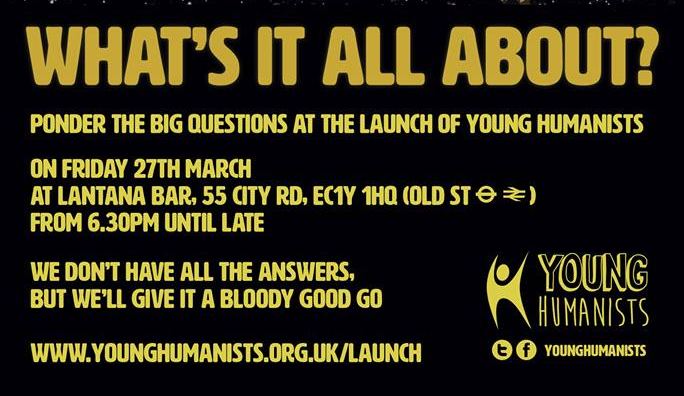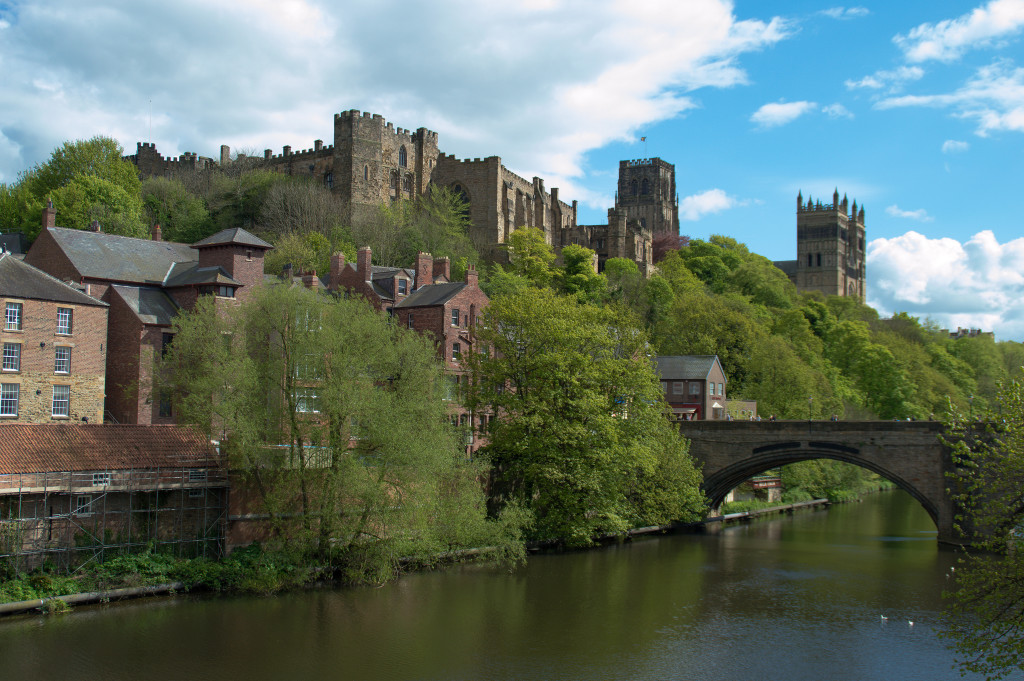James Fogg, in this guest post on HumanistLife, discusses the increasing popularity of the humanist perspective among young people, as well as the broad popularity of BHA campaign areas within that demographic.

Your views on various issues, and the rational, empathetic approach you took to get there? It has a name. Photo: Jacob Bøtter
I believe many people, young and old, are unconsciously living a humanistic lifestyle. Never before has Humanism been so unconsciously prevalent in the lives of young people. According to the latest British Social Attitudes Survey, two thirds of today’s young people between ages 15 and 34 say they have no religion, and this means that they are happily finding their own way… without need for religious guidance. If you’re in this demographic, many of your friends will probably be humanists as well, often without realising. In fact, the UK population shares a great deal of common ground when it comes to a ethical issues and questions – and many of them will take a decidedly ‘humanist’ approach to answering these questions. When it comes to these sorts of questions, the views of the public at large, and young people in particular, align with those of the British Humanist Associations and its portfolio of campaigns.
‘Faith’ schools
With 51% of the British population identifying themselves as non-religious, we can safely assume a large proportion of children will not be brought up in a religious home. However, one third of state-funded schools are ‘faith’ schools, and children are sometimes very susceptible to misinformation. As they regard schools as places of education they may automatically assume all that they are taught is fact-based. We of course know better. But needless to say, religion is not fact-based. It is riddled with flaws including archaic doctrines, irrational behaviour, illogical thesis, and mythical beings.
The only place religion should have in schools is in the History and Religious Studies curriculums – it is of course right that young people learn about major world religions. But it’s wrong to teach them that any religion is literally true, as can be taught in ‘faith’ schools.
A Guardian poll in 2005 for example, found that 64% of people surveyed opposed state-funded faith schools of any kind. I firmly believe there is no such thing as a Christian, Islamic, Jewish child or otherwise. All children are born blank slates, without knowledge of custom or religion, until their minds are introduced to religious ideas or indoctrination, at home or in schools. Opposition to ‘faith’ schools is one area where the BHA and humanists generally act as prominent voices for the views of a wide swathe of people in Britain.
Equality and human rights
Human rights, covering things like the right to know our own minds, to express our own thoughts and beliefs, the right to education, a fair trial, freedom from slavery etc. are universal. We have these rights by dint of being human. Human rights are a bulwark against inequality, prejudice, and oppression. Equality and human rights are one and the same thing, and it is these simple truths as to the basic rights we require to live our lives – as encoded in the Universal Declaration of Human Rights – which best encapsulate what it means to be free, to be human, and to be who you are with confidence and without worry.
Marriage equality
The YouGov/Sun Poll from 2013 found that three quarters of people aged 18-24 supported the right of same-sex couples to have legally binding partnerships, referring to civil partnerships. Many more polls since have found broad support for same-sex marriage and civil partnership rights across the population, and consistently among young people. Humanists and the BHA have a strong history on this issue, and one they can be proud of. For example, humanist organisations around the world, including the BHA here in Britain, have been at the forefront of campaigns for marriage equality. I believe we can look forward to a time when ‘coming out’ of the closet and perhaps even concepts of sexual orientation are regarded as old-fashioned.
Assisted dying
This is a sensitive subject for many people. It raises many questions about ethics and the level of control we have over our own lives, and it’s a subject I feel passionately about. People should have the right to die. It’s as simple as that. I hope I live long enough to decide how I go, and if not, I hope I go out in style. Around 80% of the British population support a change in law allowing the terminally ill help to end their own lives. The current law mandates relentless suffering, and makes no concessions for the right to autonomy. Lord Falconer’s Assisted Dying Bill is an important piece of proposed legislation, and has been a lightning rod for a much-needed wider discussion around this issue. The BHA advocates for anyone suffering an incurable illness, who has made a committed and uncoerced decision, to have an assisted death should they want one. This, I believe, is the most ethical position and it is one motivated by a humanist perspective on ethics.
For me, that’s what Humanism is all about: rational thought and compassion working for the benefit of everyone. For the purposes of illustration I have chosen just a handful of the BHA’s campaigns. There are more, and there is plenty more good work to be done.
James Fogg is a volunteer at Young Humanists, the new section of the British Humanist Association for 18-35 year olds. Young humanists are invited to the launch party taking place in London on 27 March – find out more at www.younghumanists.org.uk/launch. You can follow Young Humanists on Facebook and Twitter.



